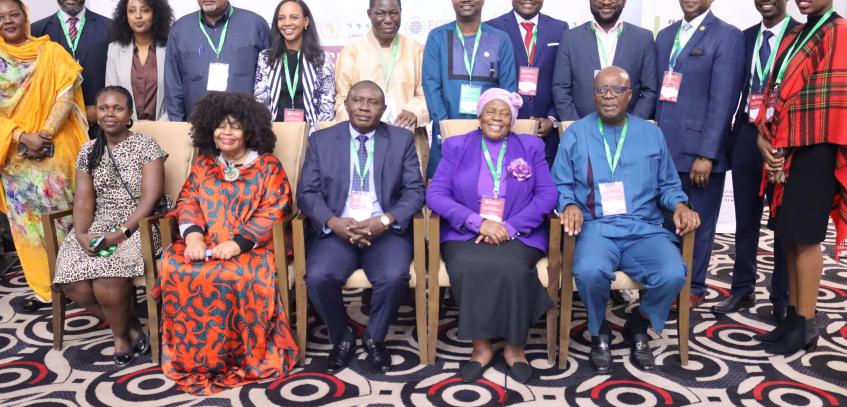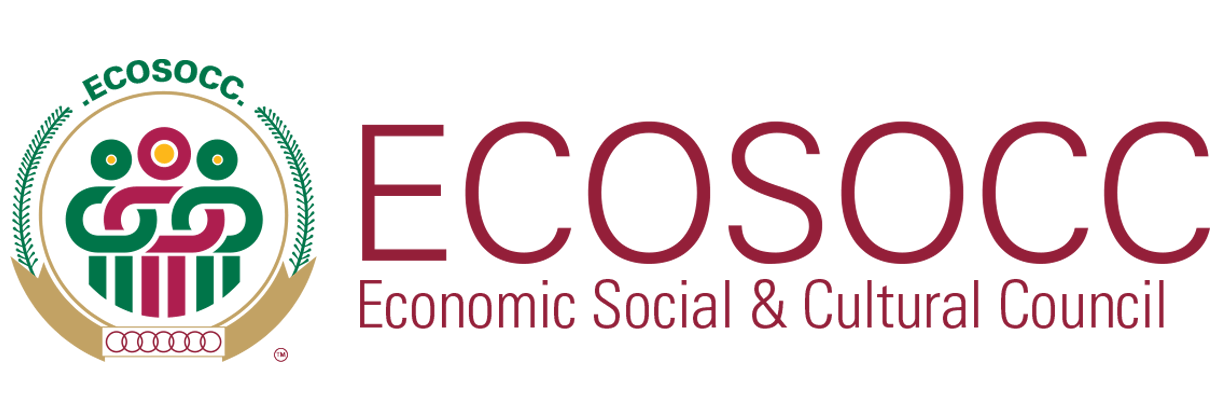Civil Society Organisations have been called upon to actively participate in issues pertaining to democracy and Unconstitutional Changes of Government (UCG) that have recently rocked some countries in Africa.
The clarion call to action was made during the ongoing African Union Economic Social and Cultural Council (ECOSOCC)’ Citizen’s Forum on Democracy and Unconstitutional Changes of Government in Africa held in collaboration with the AU’s African Peer Review Mechanism (APRM), the African Commission on Human and Peoples' Rights (ACHPR) and the Citizens and Diaspora Directorate of the AU Commission.
The Citizen’s Forum is an outcome of a Reflection Forum that was organized by the AUC’s Department of Political Affairs, Peace and Security (PAPS) and the Government of Ghana on Democracy and UCGs in March 2022. The upsurge in UCG incidents, poses a renewed and profound challenge to the realization of the AU Agenda 2063, and to the peace, security, democracy, and prosperity, envisaged in its Aspirations.
In an effort to assess the threats, evaluate current response mechanisms, and decide on actions and measures, the Accra Reflection Forum called for, among others, an annual Citizens’ Forum for CSOs to engage, deliberate and make pronouncements on governance, peace and security matters in Africa.
Officially opening the Forum, ECOSOCC Presiding Officer, Mr. Denise Kodhe, highlighted the importance of African civil society discussing and engaging in issues of democracy in Africa. He emphasized on the need for the expansion of the network of CSOs and the use of opportunities to inform their position on UCG.
Head of ECOSOCC Secretariat, Mr. William Carew, expressed the importance of African citizens' contribution in addressing the issue of democracy and UCGs as well as the translation of AU instruments such as the African Charter for Democracy, Elections and Governance, into reality. He stated that the forum therefore, provided an opportunity to re-establish the citizen ownership of the discipline and conscience of African constitutionalism.
“The outcome of the forum will inform areas of re-examination of policy dynamics and recommend citizen-focused and citizen-led remedies to apparent issues that threaten constitutionalism and democracy in Africa,” he said.
Prof. Eddie Maloka, Chief Executive Officer for African Peer Review Mechanism said there was need to recognise that the rise of UCG in Africa may be a symptom of shortcomings in efforts to promote integration and full participation in democracy and governance.
Amb. Salah Siddig Hammad, Head of the Secretariat of the African Governance Secretariat at the African Union Commission, AUC Head of African Governance Architecture (AGA), noted that Africa could not develop without the citizens’ voice in crucial discourses being heard. He stressed that the forum was a great opportunity for the AU to listen to the people in an effort to make Africa a better place for the coming generations.
Africa Development Bank, Principal Advocacy and Partnership Officer, Mr. Luther Yameogo, commended the AU’s efforts in involving citizens in development policies affecting them. He stressed the importance of citizens' contribution in the development of Africa, quoting Joseph Ki-Zerbo that, “Africa will be what it is thanks to the voice of the civil society.''
ECOSOCC’s Citizens’ Forum on Democracy and Unconstitutional Changes of Government in Africa is designed to provide a unique opportunity for African civil society to pronounce itself on the ongoing continental debate on UCG in Africa.
The Forum’s participation is drawn from CSOs from all five regions of the continent working in relevant fields, including academia, media, youth groups, women’s groups, advocacy organizations, community-based organizations, non-governmental organizations, faith-based organizations, and regional CSO networks.
A policy statement and a civil society program of action will be issued at the end of the forum and circulated to all AU member states.








